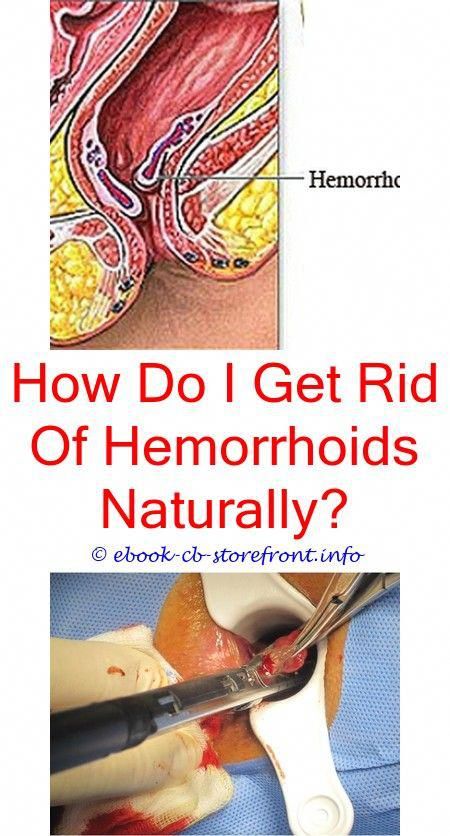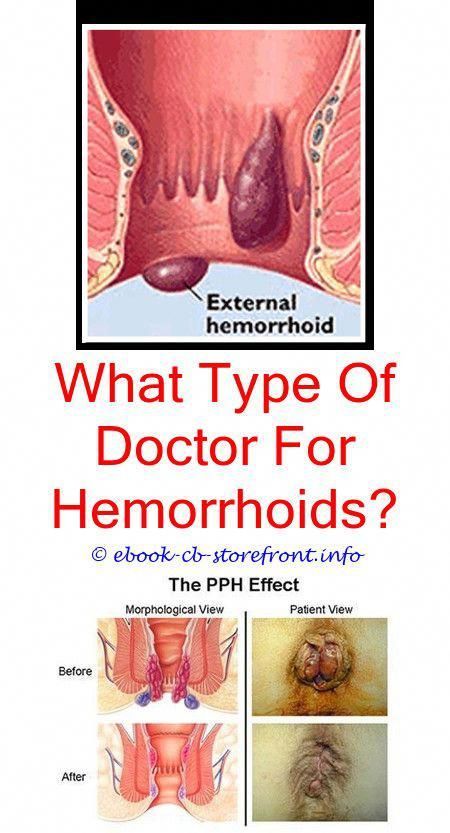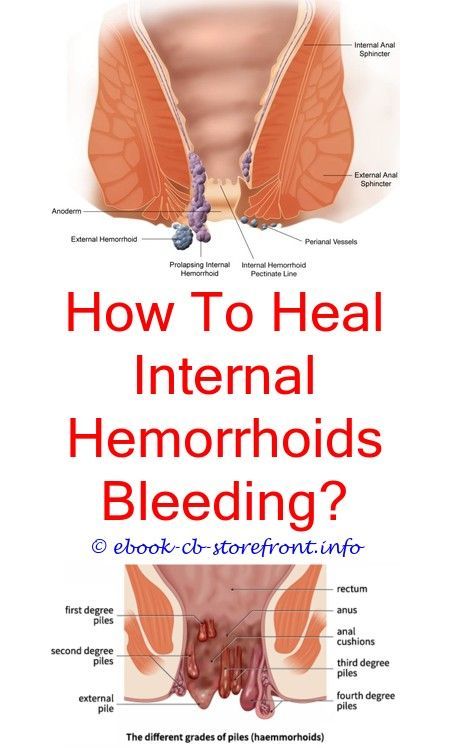How Do I Treat Rectal Bleeding
In most cases, rectal bleeding can be treated by caring for the cause of the bleeding. Rectal bleeding is often a part of a bigger issue that needs to be taken care of. Once that condition has been treated, the bleeding usually stops. Treatment options can vary depending on the condition. Conditions like anal fissures can go away on their own over time or be treated with ointments. Hemorrhoids are another common cause of rectal bleeding that can be treated by either resolving any constipation issues, changing your diet and water intake, or possibly having surgery.
One more severe cause of rectal bleeding can be cancer. If this is the case, your healthcare provider will develop a treatment plan to treat the cancer, often removing any tumors.
How Will A Doctor Make A Diagnosis If You Have Rectal Bleeding
Your doctor will take a medical history and perform an examination in order to determine which tests are necessary for diagnosis. Dr. Sachar asks patients when they first noticed the rectal bleeding. She says that blood connected with defecation is generally less severe than general bleeding. In the latter condition, there is risk of significant blood loss if you experience general rectal bleeding unrelated to a bowel movement, its important to get immediate attention. Typically a colonoscopy will be done to determine the best treatment option.
If you have other symptoms as well, such as dizziness, chest pain, or shortness of breath, these may indicate a more serious illness, such as cancer.
Diagnosis For Bleeding Hemorrhoids
A licensed healthcare professional can help diagnose bleeding hemorrhoids. To get the diagnosis, your doctor may have you undergo a physical examination and:
- Rectal examination, where a doctor uses a gloved finger to check inside your rectum.
- Anoscopy, where a doctor inserts a lighted scope into your rectum to examine the anal canal.
- Colonoscopy, where a doctor places a long flexible tube with a tiny camera into your rectum to examine the entire colon.
There are two types of hemorrhoids:
- Internal hemorrhoids: Hemorrhoids hidden inside the rectum are called internal hemorrhoids. These are usually painless but can cause bleeding when you use the bathroom.
- External hemorrhoids: Hemorrhoids that you can see or feel are called external hemorrhoids. These are usually more painful because the skin becomes irritated and eroded.
A health care provider will help you determine what kind of hemorrhoids you have and discuss the best treatment options.
- Fibersupplements to help soften your stool
- Laxatives to help you make healthy stools
- Sitz bath to improve blood flow and relax the muscle around the anus
Over-the-counter creams and rectal suppositories may be another option to treat a bleeding hemorrhoid. These can help relieve pain, itching, and inflammation temporarily:
Minimally invasive treatments
In other cases, your doctor might recommend sclerotherapy. Sclerotherapy is when a doctor injects a chemical solution into a hemorrhoid, causing it to break down and scar.
Surgery
Recommended Reading: Is Vicks Vaporub Good For Hemorrhoids
How Would My Stool Look If I Had Rectal Bleeding
When you have blood in your stool it can look a few different ways. You may have bright red streaks of blood on your poop or you could see blood mixed in with it. Stool could also look very dark, almost black, and tarry.
Sometimes, you can have blood in your stool thats not visible. This is called occult bleeding. This can be a sign of bleeding inside your digestive tract. It can also signal a more serious condition like an inflammation disease in your intestines or cancer. Occult bleeding is usually found during lab tests that look at a sample of your poop to check for small amounts of blood. This is called a fecal occult blood test and it can be used as a way to screen for possible colorectal cancer. Your healthcare provider might recommend this if you have a family history of colorectal cancer.
One thing to keep in mind when you see an unusual color in your poop is what you ate. There are certain foods that can change the color of your stool and make it look red or even black. This is often mistaken for blood in your stool.
Are Bleeding Hemorrhoids Dangerous

Hemorrhoids themselves are not considered dangerous, but rectal bleeding could warrant further examinations, performed by your doctor.
On occasion, rectal bleeding is misconstrued as a simple case of hemorrhoids, likely internal, but the assumption itself is dangerous because it could be an indication of another disease.
Colon cancer also produces rectal bleeding, and so consulting with your doctor if you experience this symptom is never a bad plan.
Recommended Reading: How To Heal Hemorrhoids After Delivery
Natural Ways To Stop Rectal Bleeding
Depending on the root cause of your rectal bleeding, youll want to choose the natural remedy that best fits your situation. These natural remedies are all natural rectal bleeding preventatives as well.
1. Relieve Constipation
If constipation is the health issue behind your rectal bleeding, then youll want to check out natural constipation relief remedies. When things are moving easily then rectal bleeding is much less likely due to constipation. How do you avoid constipation or get on the other side of it and get regular again? You definitely need to look at your diet. Are you getting enough fiber? Are you drinking enough water? These are two very simple things that are absolutely key to natural constipation relief. High fiber foods that help to relieve constipation include green vegetables, beans, squash, prunes and figs. Warm bone broths and hot herbal teas are also great.
There are foods youll want to avoid if constipation is an issue. These include things like refined flour, pasteurized dairy products, alcohol and fried foods. These are all food choices that make constipation more likely or worse.
Supplementing with probiotics and eating more fermented foods also really helps to relieve constipation. Exercise, especially rebounding, a.k.a. jumping on a mini-trampoline, helps to stimulate the bowels and lymphatic system. Light exercise can also support bowel function, including stretching, walking, jogging, yoga, swimming or dancing.
2. Calm Bleeding Hemorrhoids
Get To Know Rectal Cancer
Rectal cancer is a disease in which cancer cells form in the tissues of the rectum. Sometimes cancerous tumors develop relatively close to the anal canal, a short tube at the end of the rectum through which stool leaves the body. It is commonly found in both male and female. Major contributing factor to develop rectal cancer is related to the family history of cancer, especially first-degree relatives. A wide range of signs and symptoms of rectal cancer might include rectal bleeding or blood in the stool, irregular stool patterns such separate hard lumps, a feeling of incomplete defecation, persistent changes in bowel habits including diarrhea or constipation, or alternating bouts of diarrhea and constipation, abdominal discomfort such as cramps or pain, fatigue or weakness and unintentional weight loss. In addition, manifestations are determined by disease severity, location and its stage.
Hemorrhoids have certainly shared similarities with rectal cancer. If these warning signs and symptoms exhibit, immediate medical attention must be sought in order to receive appropriate and timely treatments. The differences involve:
Don’t Miss: What Is Good To Use For Hemorrhoids
How Are Hemorrhoids Diagnosed
To make a diagnosis, your health care provider
- Will ask about your medical history
- Will do a physical exam. Often providers can diagnose external hemorrhoids by looking at the area around your anus.
- Will do a digital rectal exam to check for internal hemorrhoids. For this, the provider will insert a lubricated, gloved finger into the rectum to feel for anything that is abnormal.
- May do procedures such as an anoscopy to check for internal hemorrhoids
Who Removes Hemorrhoids Treatment
Treating enlarged hemorrhoids is important, because they tend to get worse over time. Hemorrhoids are treated with a variety of measures including diet, over-the-counter medicine like
- anti-inflammatory pain killers,
and various treatment options are available, like
- sclerotherapy,
- surgery.
Who Removes Hemorrhoids?
Most hemorrhoid complaints begin with a trip to a family doctor. Your doctor will then refer you to a specialist: either a gastroenterologist or a proctologist . Proctologists specialize in surgical treatments, while gastroenterologists are experts in digestive diseases.
Read Also: What To Do When Your Hemorrhoids Are Swollen
Can Hemorrhoids Bleed When Passing Gas
Hemorrhoids are not known to cause bleeding when passing gas.
Many experts believe that the rectal bleeding that arises from having internal hemorrhoids is from a hard stool passing through the bowels.
The hard stool scrapes the lining that is located inside the rectum, and this is where the bleeding originates.
However, hemorrhoids can make passing gas uncomfortable, as well as when you are sitting and standing in certain positions.
If you are experiencing bleeding when passing gas, let your doctor know right away.
Your doctor may want to perform additional examinations if this is a persisting issue for you.
How To Stop Piles Bleeding Immediately
This article was published on February 11, 2013, and was last updated on May 1st, 2019 in Hemorrhoid Banding.
If you have bleeding piles, youre probably pretty freaked out, but there is good news. The condition is usually able to be simply treated without surgery or without missing work. Rectal bleeding can be caused by more serious conditions, however, so you should consider seeing your doctor for this problem, especially if you are at least 40 years old or have a family history of colon cancer.
Bleeding piles are mostly an annoyance, although they can be painful. Fortunately, if you have bleeding piles, there are a lot of things you can do for immediate relief. Below, we go through a number of the options for immediate relief from bleeding piles.
You May Like: Where Do You Get Hemorrhoids
Can Bleeding Hemorrhoids Cause Anemia
Complications from hemorrhoids are rare, such as anemia.
Anemia is a deficiency of red blood cells, and this condition can bring on symptoms of feeling tired, weak, shortness of breath, and sometimes, loss of consciousness.
In most cases, your case of hemorrhoids must be severe enough to induce chronic bleeding.
Of course, if you are experiencing chronic loss of blood from hemorrhoids, tell your doctor or call emergency services immediately.
This is a rare side effect derived from hemorrhoid complications, and it could indicate a more serious gastrointestinal disease.
Do not try to treat severe hemorrhoids with chronic bleeding at home yourself or you could be putting yourself at risk for additional complications.
Diagnosis Of Rectal Bleeding

Do not assume the rectal bleeding is from hemorrhoids. A physical exam, rectal exam, sigmoidoscopy, and in some cases colonoscopy is mandatory to identify the cause of the bleeding and help rule out other conditions such as colon or rectal cancer. Associated change in bowel habits, weight loss, and abdominal pain mandate additional testing. New onset rectal bleeding in someone over the age of 40 that is not typical of hemorrhoids or does not respond to banding requires further testing with colonoscopy. Selected patients under the age of 40 may also need colonoscopy as colon cancer does occasionally occur in younger individuals. Sexually transmitted diseases of the rectum such as HPV, syphilis, gonorrhea, or herpes may also cause rectal bleeding.
You May Like: How Do I Treat Bleeding Hemorrhoids
Is Bright Red Blood In My Stool Worse Than Darker Blood
The longer the blood is in your digestive tract, the darker it will typically look. This is because there are digestive chemicals in your body that naturally break down everything that moves through your digestive tract. The blood gets darker the longer its in contact with these chemicals. If your bleeding is higher up in the digestive tract, it might appear darker in the toilet. If you see bright red blood, that can mean its lower in your digestive tract or is moving through your body very quickly. While there are many benign causes of bright red bleeding, there are fewer benign causes of darker blood for this reason, dark blood may be more concerning, and warrants workup by your healthcare provider.
How To Get Rid Of Hemorrhoids: Diagnosis And Treatments
Most individuals who have hemorrhoids discover them by either
- feeling the lump of an external hemorrhoid when they wipe themselves after a bowel movement,
- noting drops of blood in the toilet bowl or on the toilet paper, or
- feeling a prolapsing hemorrhoid after bowel movements.
With a history of symptoms, a physician can begin diagnosis on the basis of a careful examination of the anus and anal area. Although the physician should try his or her best to identify the hemorrhoids, it is perhaps more important to exclude other causes of hemorrhoid-like symptoms that require different treatment such as
- anal fissures,
This is true whether or not hemorrhoids are found during anoscopy.
Don’t Miss: How Do Doctors Fix Hemorrhoids
Hemorrhoids In Patients With Cirrhosis Or Portal Hypertension
A clinician must differentiate bleeding hemorrhoids form bleeding anorectal varices because the latter can be managed by suture ligation along the course of varices, transjugular intrahepatic portosystemic shunt, or pharmacological treatment of portal hypertension. Since a majority of bleeding hemorrhoids in such patients is not life threatening, conservative measure with the correction of any coagulopathy is a preferential initial approach. Of note, rubber band ligation is generally contraindicated in patients with advanced cirrhosis due to the risk of profound secondary bleeding following the procedure. Injection sclerotherapy is an effective and safe procedure for treating bleeding hemorrhoids in this situation. In a refractory case, suture ligation at the bleeder is advised. Hemorrhoidectomy is indicated when bleeding hemorrhoids are refractory to other approaches.
Do Hemorrhoids Always Bleed
No, hemorrhoids do not always bleed.
Often, painless bleeding is a sign of the presences of inflamed internal hemorrhoids.
While rectal bleeding is a common side effect, this symptom should still be reported to your doctor.
Rectal bleeding is a symptom that can occur from many gastrointestinal disorders.
External hemorrhoids are one of the two types of hemorrhoids, and usually, these hemorrhoids do not produce blood.
External hemorrhoids are small rubbery bumps located around the anal opening and cause pain, itching, and discomfort, though are not known to bleed unless they become thrombosed, meaning a blood clot can form inside of them.
Blood clots can burst and result in bleeding, but this is rare.
Recommended Reading: How To Get Hemorrhoids To Stop Itching
Acutely Thrombosed Or Strangulated Internal Hemorrhoids
Patients with acutely thrombosed or strangulated internal hemorrhoids usually present with severely painful and irreducible hemorrhoids. The incarcerated hemorrhoids may become necrotic and drain. This situation is quite difficult to treat particularly in a case of extensive strangulation or thrombosis ,3A), or the presence of underlying circumferential prolapse of high-graded hemorrhoids. Manual reduction of the hemorrhoid masses, with or without intravenous analgesia or sedation, might help reducing pain and tissue congestion. Urgent hemorrhoidectomy is usually required in these circumstances. Unless the tissues are necrotic, mucosa and anoderm should be preserved as much as possible to prevent postoperative anal stricture. In expert hands, surgical outcomes of urgent hemorrhoidectomy were comparable to those of elective hemorrhoidectomy.
Complicated hemorrhoids. A: Strangulated internal hemorrhoid B: Acutely thrombosed external hemorrhoid.
What Should I Do If A Hemorrhoid Bursts
A burst hemorrhoid usually doesnt require any treatment. But you may want to take a sitz bath to soothe the area and keep it clean while it heals. A sitz bath can also help to increase blood flow to the area, which aids the healing process.
To take a sitz, bath, follow these steps:
- Fill a clean bathtub with 3 to 4 inches of warm water make sure its not too hot.
- Soak the area for 15 to 20 minutes.
- Try bending your knees or putting your legs over the edge of the tub to make sure the areas submerged.
- Gently pat dry the area with a clean towel, making sure you dont rub or scrub.
Don’t Miss: How To Get Rid Of Hemorrhoids Fast After Birth
Why Do Hemorrhoids Bleed
Straining or passing a particularly hard stool can damage the surface of a hemorrhoid, causing it to bleed. This can happen with both internal and external hemorrhoids. In some cases, a thrombosed hemorrhoid can burst if it becomes too full, resulting in bleeding.
Blood from a hemorrhoid will look bright red on a piece of toilet paper.
Rectal Bleeding Causes + 5 Natural Ways To Find Relief

If youve been pooping blood recently, hopefully you havent been ignoring it like its no big deal. Seeing bright red blood on the toilet paper or in the toilet bowl is definitely a sign that something is not exactly right in your body at that moment, particularly in your gastrointestinal tract. Sometimes it may just be that youve been struggling with constipation or maybe its hemorrhoid symptoms, but sometimes the cause of rectal bleeding can be more serious.
If you see bright blood in your stool, try to stay calm because hopefully its nothing serious. Rectal bleeding is often caused by a small tear down there or hard stools, but rectal bleeding can also be caused by more serious health problems like cancer.
Its really important to identify the root cause of rectal bleeding. If you know its something not so serious, then there an array of natural remedies to choose from, but if it is more serious then its important to know that cause too. When it comes to rectal bleeding, you definitely need to know the cause to properly address it and get rid of it. Lets talk about how to figure out the cause and the best natural treatment approach for your particular case of rectal bleeding.
Don’t Miss: What To Know About Hemorrhoids